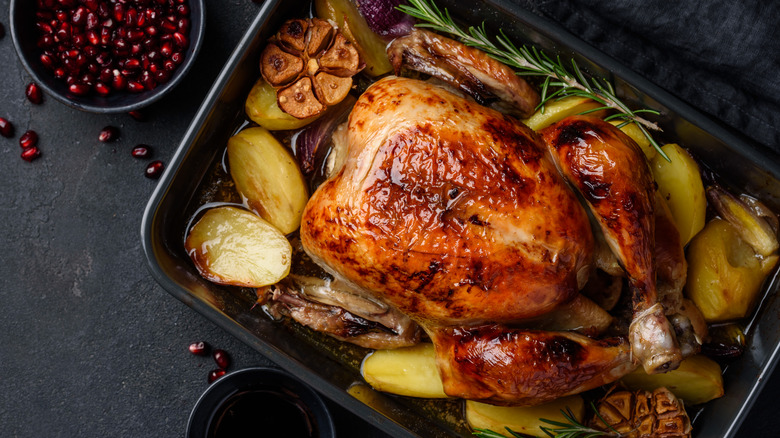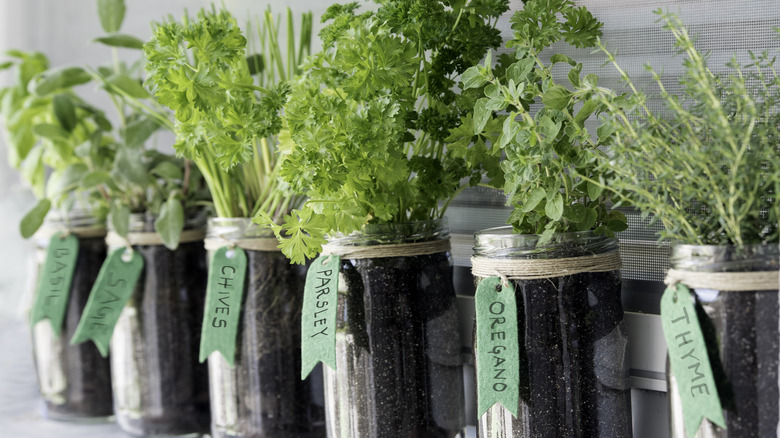Herbs That Will Automatically Upgrade Your Thanksgiving Turkey
Thanksgiving is right around the corner, and it's time to start planning Thanksgiving dinner. Whether you're preparing a Thanksgiving dinner for two or planning to make some Thanksgiving dishes ahead of time, you need to treat your turkey with care this year. Naturally, turkey can become bland and/or dry rather quickly, but if treated with love, it can be moist, flavorful, and delicious.
The real reason we eat so much on Thanksgiving may be a mystery to some, but it at least partially has to do with how delicious our feasts can be. Preparing the best turkey possible hinges on brining your bird, stuffing it with onions and other aromatics, smearing seasoned butter under its skin, and following other delicious preparation tips (via Fine Cooking). One of the best ways to enhance a turkey's flavor is by using herbs.
Thanksgiving marks the end of the warm season, so using herbs is not only a delicious choice but also one that respects nature's harvest. Still, choosing the right herbs matters.
Don't forget to add sage and thyme to your grocery list this year
When it comes to Thanksgiving turkeys, herbs are the best way to ensure your bird is seasoned all the way through. In fact, Taste of Home recommends not only seasoning the outside of the bird with herbs but also stuffing a bundle of your favorite herbs into its cavity so that they permeate throughout it.
Two of the most popular Thanksgiving herbs are thyme and sage because of their flavor palettes and growth cycles, but parsley and rosemary are also excellent. The Pioneer Woman, for example, uses equal amounts of sage, thyme, and rosemary in her Thanksgiving turkey recipe (via Food Network). According to eHow, these herbs should also be used in your stuffing to create a through-line of flavor and tie the meal together in a cohesive bow.
Sage and thyme pair best with turkey's gamey flavor, and they can be applied in either a dry drub or a wet rub before baking. For a wet rub, mix these woody, nutty herbs with olive oil and lemon juice (along with other spices), or for a dry rub, mix them with the rest of your spices and apply liberally to the turkey's surface (via eHow). If using dry herbs as opposed to fresh ones, don't forget to rub them between your hands before adding to your wet or dry rub. This brings out their oils and therefore enhances their flavors, per Cucina Antica. Happy cooking!

